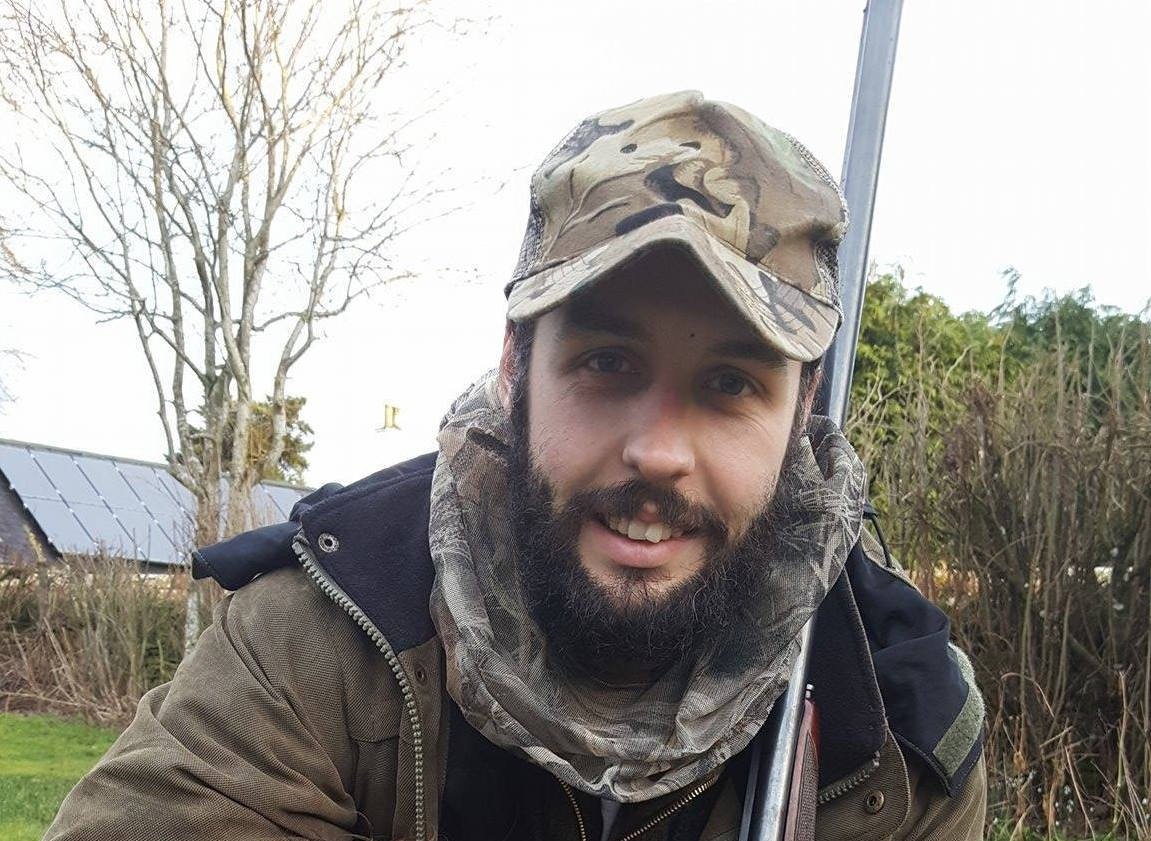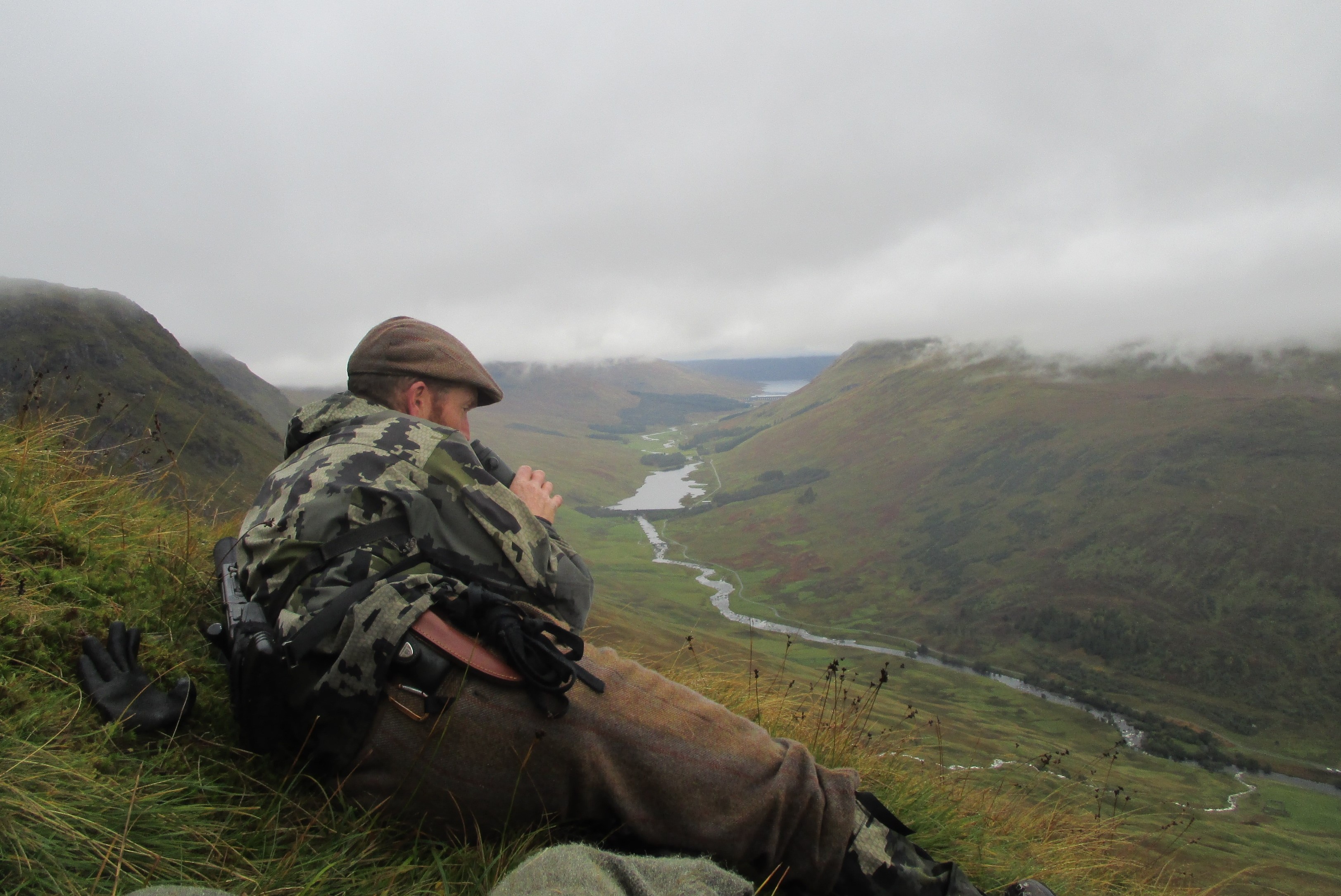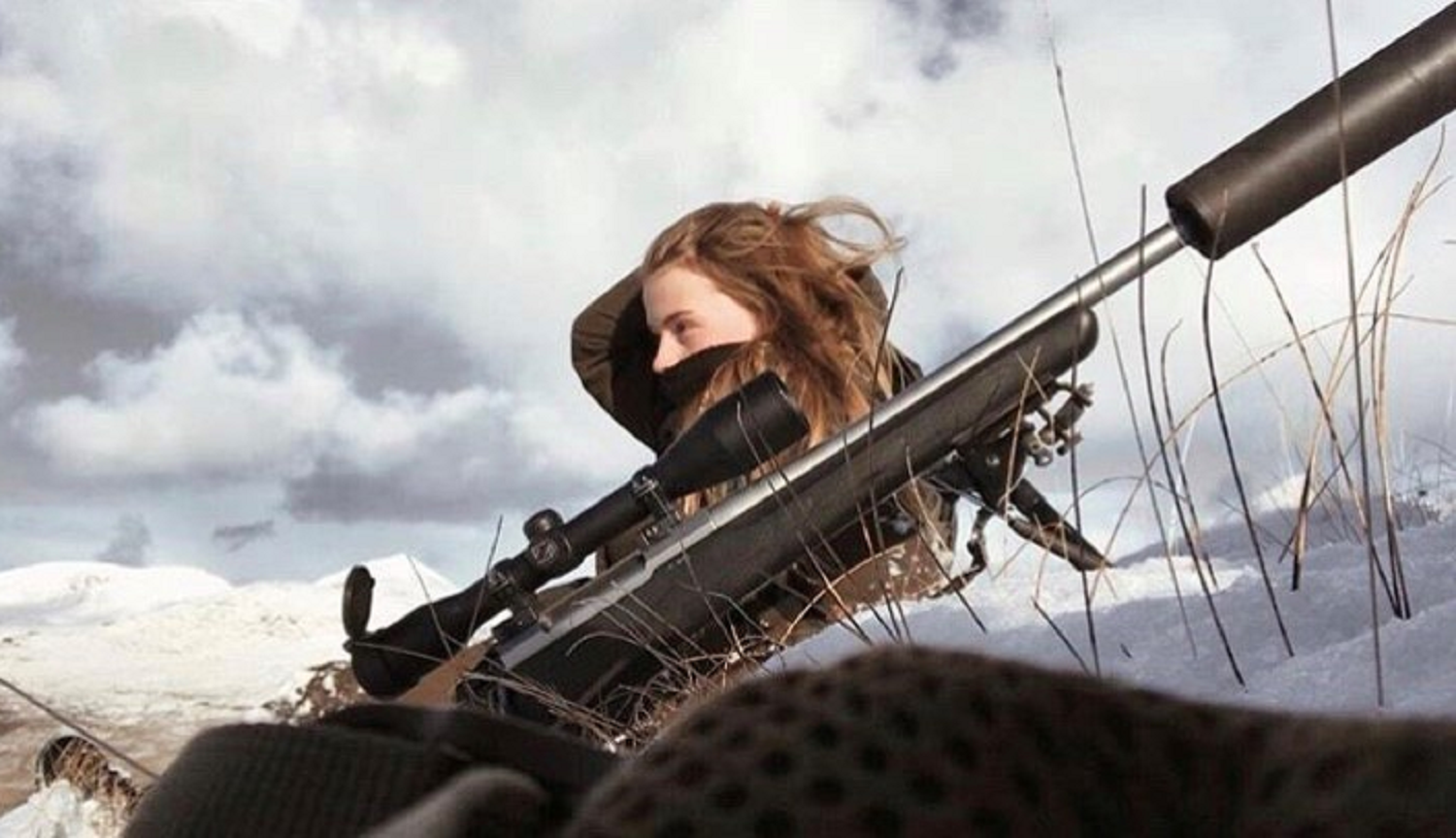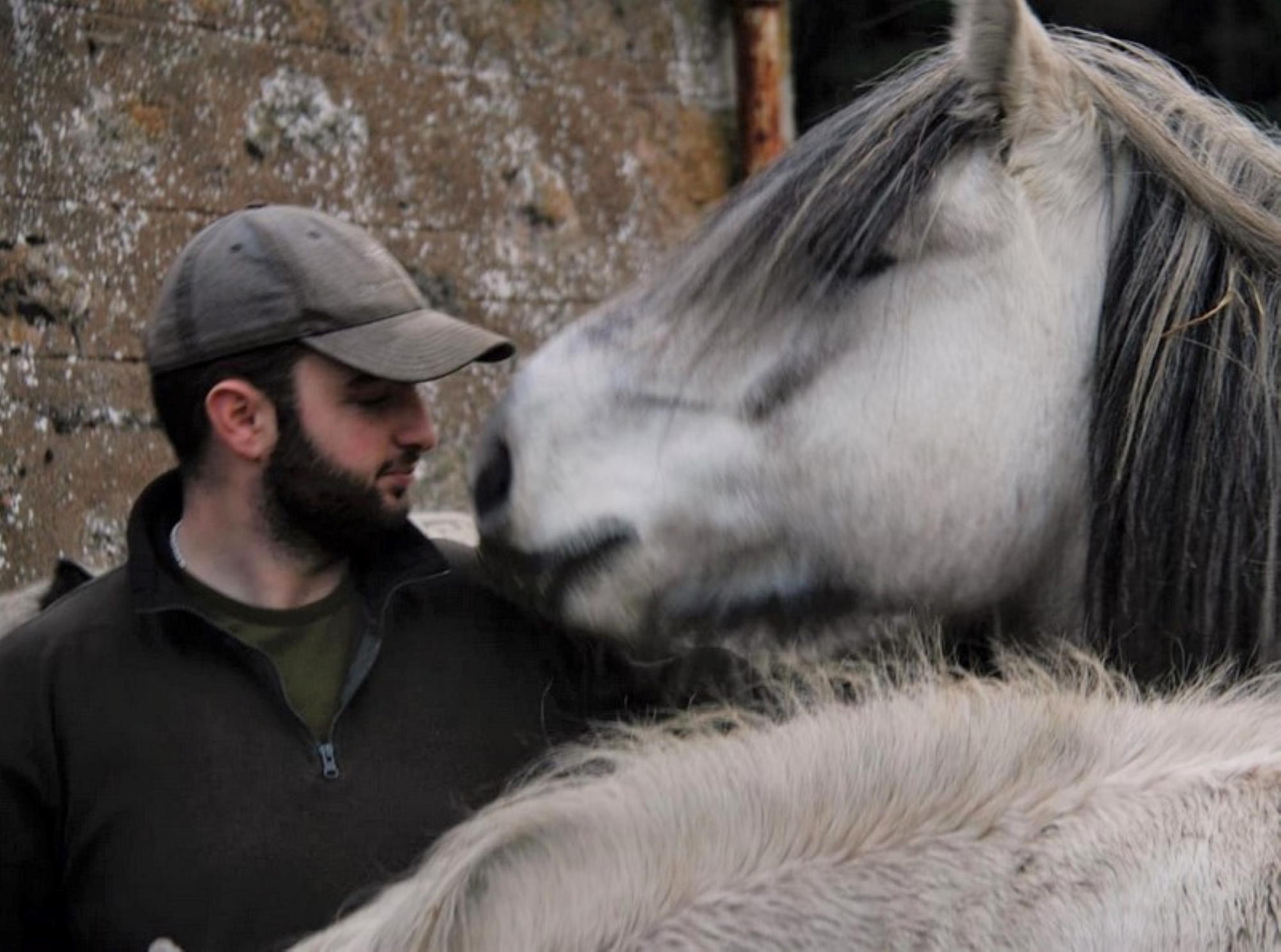

30-year-old Iain Macmaster has a lot on his hands looking after six miles of riverbank at Finavon Castle Water on the South Esk. He describes himself as a ghillie, fishery, estate and wildlife manager, which as the job title suggests, involves a wide range of responsibilities and skill sets.
Iain explains: “On any given day I could be acting as ghillie, forester, maintenance man, stalker or gamekeeper. I suppose that makes me a jack of all trades but I love it. I also run a rural education programme for the Esk District Fishery Board which involves going into local schools to talk to the kids, and then inviting them to the estate to see how the land is managed and learn about the riverine environment. The kids love it, and I find it a really interesting and rewarding thing to do.”
One of Iain’s main roles throughout the growing seasons is grass cutting, track maintenance and tree felling. This important work ensures easy access to the fishing beats, maintains the look of the estate and helps control invasive species such as Giant Hogweed and Japanese Knotweed, as well as animals such as Roe Deer, American Mink and Sawbilled Ducks throughout the license period.
Iain said:” I spend a lot of time felling trees and processing firewood for the estate, cleaning up after any winter spates, feeding pheasants, and repairing and maintaining infrastructure. I am enjoying seeing my work and influence on the estate starting to become more obvious, which is a really satisfying aspect of the job.”
Iain also relishes the interaction he has with the general public. As a ghillie, he supports tenants who come to fish the river for salmon and sea trout. This can involve tutoring novice anglers or providing helpful advice to someone who already knows a section of river intimately.
He said: “I meet all sorts on the river and that’s one of the things I love about my job. I’ve been fortunate to have some wonderful times and conversations with people ranging from Vietnam veterans to taxi drivers and tradesmen. There’s not much I can do about the river conditions or the number of salmon in the beat, which is why it’s important to provide people with a warm welcome, tidy huts and a kettle on the boil.”
Iain has been working at Finavon for six years now, and through that time has built up an impressive portfolio of vocational qualifications. These include chainsaw tickets, a two-year fisheries management qualification through the Institute of Fisheries Management, deer management qualifications, and he has also just passed the Scottish bailiff’s exam through the Institute of Fisheries Management.
He said: “I’m now a warranted bailiff for the Esk district. A big part of my role is simply being a presence on the river and developing links with local people who know that the area is being looked after, which is important from a security point of view.
Controlling poaching is a natural part of my job and ensures our beat isn’t overfished. We work closely with the local authorities and people who use the river regularly. Being able to communicate well and gain people’s trust is a key part of the role, which I enjoy immensely.”
After a career in the Royal Marines, Andy decided to fulfil his dream of being a deerstalker and did an HNC in Game and Wildlife Management with North Highland College UHI.
“I thought it would be difficult to find a new role that could provide me with the same level of challenges and sense of achievement as 25 years in the Royal Marines, but becoming a deerstalker was the perfect move.
It’s a really rewarding career, as you’re privileged to be managing one of the country’s most iconic mammals, while working in such a picturesque environment.
There aren’t many jobs in which you share your office with Golden Eagles and Ptarmigan, while enjoying a view of Ben Nevis.
Whether it’s being there for someone’s first experience of deer stalking or interacting with people from all walks of life on wildlife tours, there are highlights every day.
My new role has exceeded all that I wanted my new career to be.”


Charlie Blance, a talented gamekeeping trainee from rural Perthshire, is one of the country’s rising stars in game and wildlife. As one of the few women working in the sector, Charlie is keen to see a more diverse workforce, and feels she can help make this happen by showing others what she can achieve.
She said: “There are definite challenges to being a woman in gamekeeping. It has always been a male dominated industry, so you have to work hard to prove your worth. But being a woman working in gamekeeping also has its advantages. For example, I don’t have the physical strength of some of the men, so I have to find more efficient ways to do things. I use brain rather than brawn, and in the long run, this will be better for my body. We also bring a unique perspective and way of doing things which I think is refreshing and something the industry could do with more of. Women offer a great deal and are an asset to this sector.”
Charlie started off her career studying for an HNC in Gamekeeping and Wildlife Management at Borders College, before securing a placement on the Isle of Rum with Scottish Natural Heritage. A positive experience at Borders College helped convince her that gamekeeping was the right career choice.
Charlie said: “Alan and Garry, my lecturers at Borders College, were an inspiration to me. They desperately want their students to succeed and will provide all the resources necessary to make this happen. If you express an interest in something, it doesn’t matter how small, they will link you to a person or a book that will help you take your interest further. There’s no discrimination against those who don’t fit the traditional mould of a game keeper, and it was a great environment to learn in.”
Charlie’s placement on Rum solidified her interest in conservation and working with wildlife. She continues: “Rum was a great experience and gave me a solid grounding in many aspects of gamekeeping. While on the island, I took part in woodland stag and hind culls as well as the management of feral goats. I also got the chance to monitor various wildlife species, including the Red Throated Diver, Manx Shearwater and goats. Knowing what species are on your ground is a major part of a game keeper’s job, and monitoring and tracking is a useful skill to have in your toolbox.”
Following her time on Rum, Charlie secured a six-month contract at Dunan Estate on Rannoch Moor, where she honed her skills and gained more practical experience. This included taking guests stalking during the culling season and undertaking maintenance work in the shoulder months. Following her time at Dunan, Charlie was offered a job working as a deer and river Ghillie on Benmore Estate in Sutherland, where she is now. As Charlie has gained more experience, she has learnt more about the conservation aspects of the role, a factor that is not always widely recognised.
She says: “The conservation side of gamekeeping really appeals to me. Country sports give natural spaces such as moorland, hedgerows and mixed woodland a reason to exist, ensuring a diversity of habitats. On the estate I’m working on now, we take active steps to promote biodiversity, removing invasive flora species, providing dead wood for microfauna and engaging in predator control to protect ground nesting birds. It’s a hugely satisfying job.”
The role of a gamekeeper offers many benefits, from the freedom and good health that comes from working outdoors, to meeting a diverse range of people and developing a whole range of useful skills. But for Charlie, the simplicity of being outside and witnessing the wonders of nature is often enough.
“I love being outside and seeing wildlife in action. Just the other day I was in the Glen to check on a dead deer. I was trying to find out which predatory species are living in the area, which you can do by studying the carcass. The quad bike track runs alongside a river where you’re guaranteed to see dippers working away. On this particular day, I saw three of them as well as an old Heron fishing on the river bank. When I got to the deer, a hoard of hoodie crows erupted into a flurry of black feathers, and from the crowd, a female Golden Eagle appeared. She soared above the glen, before being joined by her mate. It was amazing to watch and reminded me of why I love this job. I also often see a Sea Eagle from my kitchen window. It’s a grand view to share a coffee with.”
As if the role of a gamekeeper isn’t busy enough, Charlie finds the time to pursue other business interests. In true entrepreneurial spirit, she has set up her own online shop on Etsy, selling by-products from deer culls, as well as art and vintage décor items. Charlie is currently working on a new website for the business which she hopes to launch this summer.
She said: “I started my business in college to help make ends meet. I began by selling animal skulls and antlers online. I soon realised there was a big demand for these kind of items, so I branched out and set up an online shop. From there, it’s gone from strength to strength. I also have a bit of an Instagram following where I talk about wildlife and conservation issues. My community also happens to like the products I sell so it’s been great.”
For such a talented gamekeeper and entrepreneur, the future looks bright. Charlie has plans to become a head stalker. She also wants to continue to use her online status to promote the benefits of gamekeeping and wildlife management. As winner of Lantra Scotland’s ALBAS, she is also an ambassador for her industry and is keen to encourage others to following in her footsteps.
She concludes: “I think it’s important that we promote gamekeeping to future generations. There are many species that rely on the work we do to survive. Without funding from hunting, I believe the existence of moorland and native woodlands would be under threat. Without hunting, many of these areas would become Sitka plantations, a non-native crop that cannot support a diverse range of habitats. I’m also a big believer that working outside is good for you. Getting away from computer screens and breathing in fresh air, being surrounded by nature and working with your hands is a basic human need, and ensures we remain physically and mentally healthy.”
I am working on a large highland estate that is very conservation orientated but still has some sport stalking and shooting. Reducing and maintaining deer numbers at a low density is the priority, with the aim of achieving habitat restoration. On a normal day I would start at 6am, but some days it is 4 in the morning. First thing I do is take my dogs out, then check all the vehicles are fuelled up before we meet up in the yard and head into the hills. My dogs do a great job, and they are really good company too.
You quite often get golden and sea eagles flying nearby and the whooshing sound their wings make is seriously impressive. There are also lots of buzzards, ravens, foxes, pine martens, red and black grouse, the occasional osprey, so it is pretty diverse up here. We have translocated red squirrels to repopulate woodland and released rehabilitated rescue otters, but the goal is to restore the landscapes such as forest and peatland, so we need to have less deer on the estate.
Over the next few years, the plan is to use ponies on the hills instead of vehicles as they have a much lower environmental footprint, and I am really looking forward to using my experience and knowledge in helping that to happen.
To do my job, I need to be patient, reliable and trustworthy, and although I spend a lot of time on my own on the hills, I communicate with the team by radio a lot, so have to be clear about what I am trying to say.
The best thing about working here is constantly being outside. I love my freedom, and although most people probably would not want to start work in the middle of the night and then be out all day in the rain, I love it and could not imagine doing anything else.
